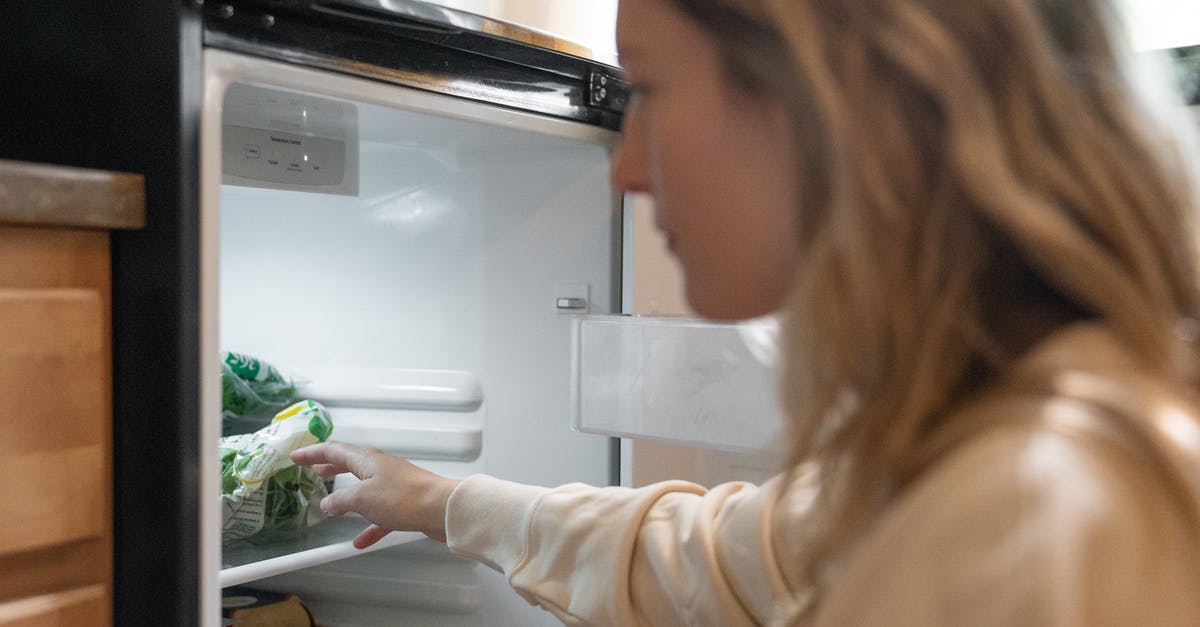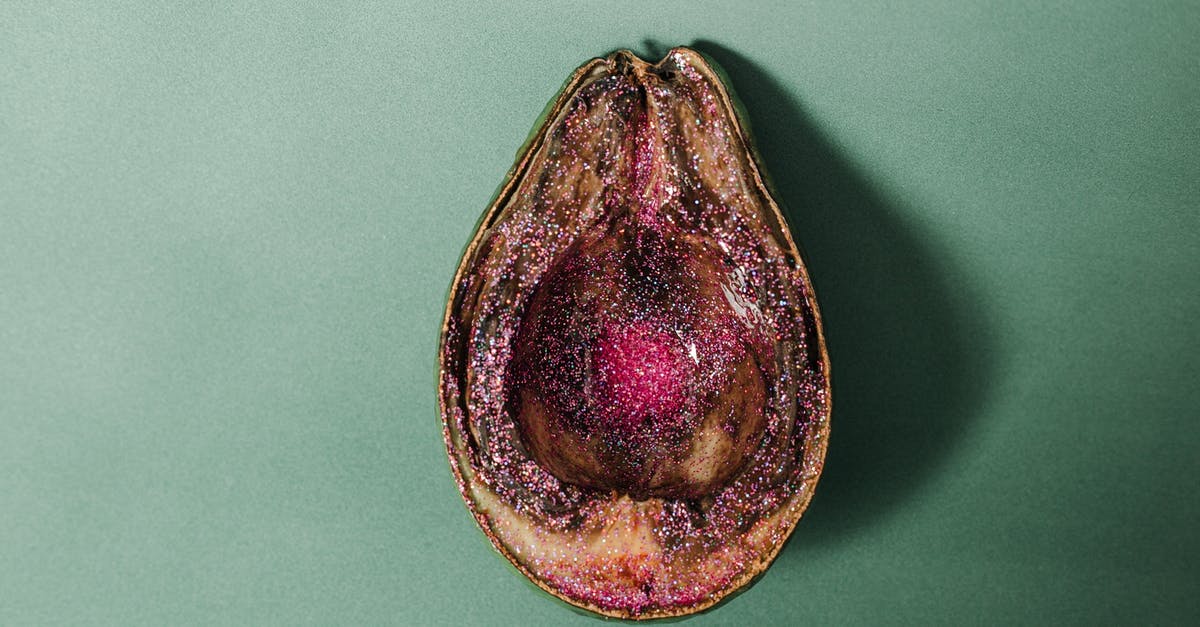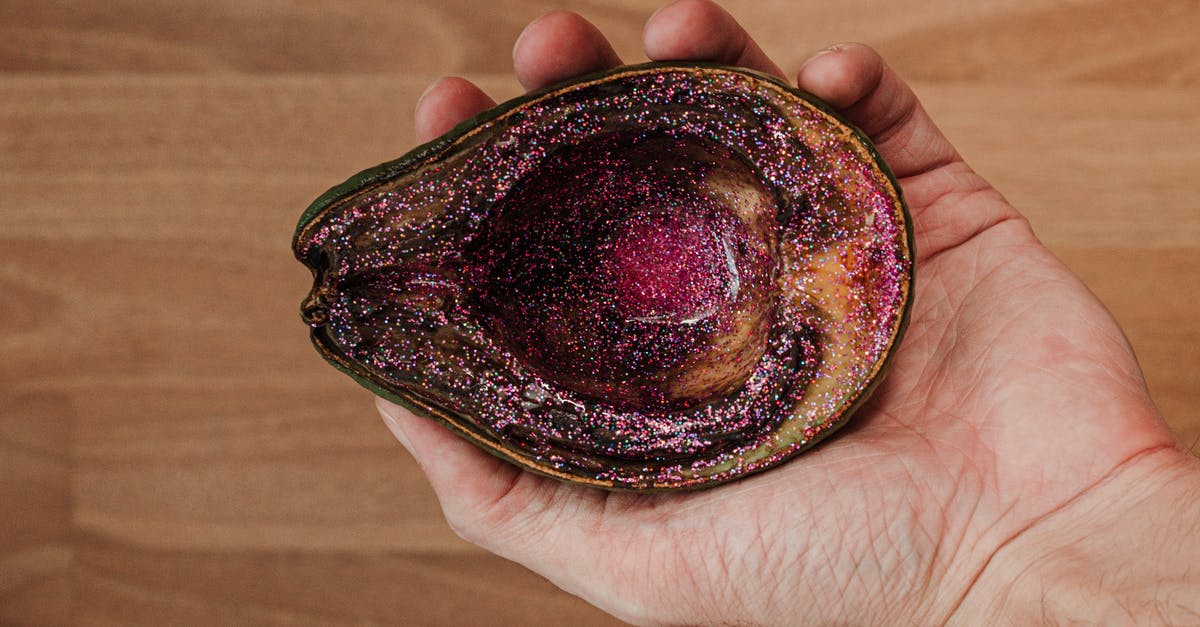Does having spoiling food in your fridge cause other food to spoil faster?

We all have forgotten remnants that get pushed to the back of the fridge and eventually become science experiments. Does the presence of such items (assuming they're left in a non-air tight container) hasten the spoilage of other food in the fridge?
Best Answer
I'm sure that most of us have, at one point, left some smelly food in the fridge (fish, onions, etc.) and later found that other foods have picked up the odour. Given that, it's a pretty safe bet to say that if some contaminant becomes airborne, it's definitely possible for it to come into contact with other food. So the question then becomes whether or not these spoilage agents can become airborne.
Let's break the problem down into the four major types of spoilage we are presumably concerned with:
1. Ripening ("Rotting")
This is induced by ethylene gas, as discussed in the question: Why does a brown paper bag speed ripening?
If sufficient ethylene gas gets trapped in the fridge - or more likely, in a small compartment of the fridge - then you'll get that same "brown paper bag" effect. If you leave, say, avocados, in the same compartment as a bunch of bananas, and the airflow in and out of the compartment is minimal, then you'll see the avocados ripen and eventually spoil faster than usual.
Note that this would only affect produce which actually ripens in storage, and only when one item produces a lot more ethylene than the other item(s). So while a banana might cause avocados to spoil faster, a bunch of avocados probably wouldn't affect nearby apples very much, and wouldn't affect citrus fruits at all (they don't ripen).
2. Mold
Mold colonies continue to grow spores which eventually become airborne when there's no "room" left for the new spores.
Check out this fun-filled diagram of mold growth stages taken from Envirochex: Mold Growth Requirements. I'd post the image right here, but an animated GIF would be a little distracting.
Anyway, the best way to visualize this is to think of the dandelions you've probably seen outside. Not so much the bright yellow flowers in the summer, but the seedheads (fuzzy gray ones) more common in the fall. Mold colonies look a lot like that on a small scale, and any kind of air current (say from the regular opening and closing of the fridge door) can disperse the loose spores. Even if the fridge is left unattended, its circulation fan is still going to run and that could be enough.
Now, this effect is more likely to be observed if you have everything completely uncovered. Simply being non-airtight certainly makes this transmission possible, but the amount of spores that manage to escape the container and settle on another piece of wet food where they can grow again, is going to be very small if there's anything at all in the way, even just a layer of plastic wrap.
But it could happen. Many canned/bottled foods which clearly could not have started with mold, such as maple syrup, can still end up with mold, and that's because they take in mold from the environment. The more mold is in the environment, the more likely this is to occur.
Even if the mold doesn't manage to inoculate any other foods in your fridge, it's still going to be present in the air, so unless you really like breathing in mold spores, please get rid of anything with more than a 1-inch-thick layer of blue fuzz.
3. Rancidity
Rancidification affects fats, and when not caused by bacteria (see below), is usually caused by oxidation.
Oxidation is (simplifying here) a function of heat, light, and oxygen (or some other oxidizing agent). This is a chemical reaction and not a biological process; since the process of oxidation consumes these things, and does not produce more, food spoilage due to rancidity is not going to affect other nearby foods.
...that is, unless you have other spoiling food that is somehow producing large amounts of light, heat, or oxygen, and if so, forget about cleaning your fridge, you'll want to send it to NASA for further study.
4. Bacteria
Right off the bat we can rule out transmission of any obligate anaerobes like C.botulinum, since those can only grow when there is no oxygen present. That still leaves quite a few pathogens, though, the most notable of which are probably salmonella, E.coli, and C.perfringens, and possibly Campylobacter.
The answer for these is... more complicated. It is technically possible for these bacteria to get airborne, but not by themselves; they need to be carried by something, like dust or aerosols. The exception is Clostridium, which can produce spores, which can become airborne just like mold spores - which is a significant risk with the aerotolerant ones like C.perfringens - but most of the time, the spores won't germinate at cold refrigerator temperatures.
All in all I'd have to say that this is an extremely unlikely occurrence, but any of the following would make bacterial cross-contamination more likely to occur:
- Warmer-than-optimal temperature (should be about 4° C)
- High humidity (water vapor)
- Dust or other particulates
And, as with the mold spores, cross-contamination is much more likely with uncovered food. Since the bacteria themselves are not airborne, it's the particulates - dust, water vapor, etc. - which must land on other "clean" food in order to contaminate it. This is very unlikely to occur if the other food is covered.
The larger concern with bacteria, from my perspective, is contamination of the refrigerator or container surfaces, which can then be easily spread to other foods or directly to your mouth by ordinary human contact. Just one of many reasons why you should probably clean your fridge on a regular basis; however, I'll confess that I don't, and have never gotten sick from my own fridge, so even this possibility seems pretty remote.
Conclusion:
I haven't attempted to quantify any of the possibilities here, as that would probably require a microbiology lab and a lot more education than I've personally had. But those science experiments at the back of your fridge definitely do have the possibility to accelerate spoilage elsewhere, and even items that aren't yet science experiments (like ripening bananas) can still have unintended side-effects.
If you want to be absolutely safe, try to make sure that all or most of what you store in the fridge has an airtight seal, and get rid of any visible (or smellable) spoilage as soon as possible. It's just common sense anyway.
Pictures about "Does having spoiling food in your fridge cause other food to spoil faster?"



Quick Answer about "Does having spoiling food in your fridge cause other food to spoil faster?"
Oxidation is (simplifying here) a function of heat, light, and oxygen (or some other oxidizing agent). This is a chemical reaction and not a biological process; since the process of oxidation consumes these things, and does not produce more, food spoilage due to rancidity is not going to affect other nearby foods.Can bad food contaminate other food in the fridge?
Going through the items in your fridge and throwing out of any out-of-date items is a must. Expired food can contaminate other foods in the fridge and could be harmful if eaten.What might cause food to spoil faster?
The higher the temperature gets; the faster food will deteriorate. According to foodsafetysite.com, for every 18 \xb0F rise in temperature within the temperature range where most food is handled (50 \xb0F to 100\xb0 F), the rate of chemical reaction is approximately doubled.Why does putting food in a refrigerator cause it to spoil slower?
PUT IT IN THE FRIDGE? Refrigeration protects food short-term from spoilage because it slows the growth of micro- organisms and activity of natural enzymes. Keep the internal temperature between 34\xb0\u201340\xb0F. Use a refrigerator thermometer to ensure the temperature stays below the Danger Zone.Why does refrigerated food go bad faster than refrigerated food?
Temperature affects storage time and food deteriorates faster at higher temperatures. Microorganisms grow rapidly at room temperature . Thus to slow microbial growth, enzymatic and oxidative processes, food must be stored at room temperature.This trendy new feature in refrigerators could be spoiling your food faster
More answers regarding does having spoiling food in your fridge cause other food to spoil faster?
Answer 2
Some fruit and veggies are known to release ethylene, which acts as a hormone and makes other fruits and veggies ripen and go bad faster.
Sources: Stack Exchange - This article follows the attribution requirements of Stack Exchange and is licensed under CC BY-SA 3.0.
Images: Karolina Grabowska, Kevin Malik, Ivan Babydov, Ivan Babydov
